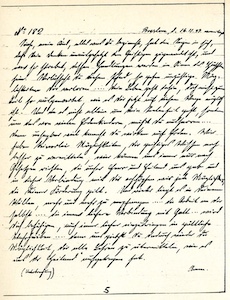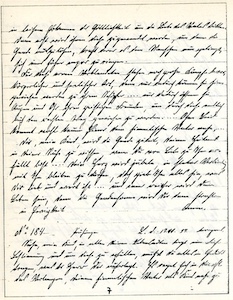B.D.-No. 2160
The universe is governed by divine laws, which have been the basis of the work of creation since eternity. No opposing power will be able to overturn or change these laws, and this lawfulness often determines people to deny an essential deity. And this has its reason in the fact that man himself as a being is unstable, that he often changes his will, that he arbitrarily does one thing and then another depending on his thinking, which likewise testifies to a certain arbitrariness or instability. Man, who due to his imperfection does not yet have a sure sense of when his actions and thoughts are so good and wise that they no longer require improvement, applies the same standard to the divine creator, Who in His supreme perfection and wisdom recognizes and has recognized the meaning and purpose of every work of creation since eternity. Consequently, His creations need no improvement but are eternally subject to the laws which God considered wise and good that He has based His works of creation on. The eternally unchangeable therefore does not correspond to the human idea of an entity, consequently man usually uses the expression 'natural power' for what he imagines 'God' to be. However, everything is given up to a force without will, because a determining will must be denied to a force alone, while the recognition of a will also requires the recognition of an entity. A force has an elementary effect, and a will is recognizable when the force is stopped. Creations would therefore constantly come into being but would never change in themselves if only the power but no will were active. The will, however, first shapes what comes into being.... But then the will also determines an entity, just as man as such would be an entity-less creature.... something mechanical.... and, although he could be active, he would be without will. Only the will makes the created an entity, just as the creative power in connection with the will must be addressed as an entity. The lawfulness of nature allows man to deny will, as the same effects of the expression of power have always been recognizable since eternity. However, man's work of creation is only slightly affected by this regularity. Although the external forms differ only slightly from each other, every human being shapes himself, i.e. his inner life, as well as the external living conditions through his will.... as long as one does not want to recognize an entity that controls every human destiny.... Man would then be more than that power if he can overturn the lawfulness of things through his will, if he can mould and shape himself, as a work of creation of this natural power, at his own discretion, if he can even reshape natural creations through his will and his activity through precisely that will which is the characteristic of an entity.
The power that is not directed by the will would have an unrestrained effect and no order would be recognizable, because all lawfulness must have been established by a will that is stronger than the power, i.e. that controls the power. Will would be impracticable without power, but power without will would not be the origin of a lawful creation, i.e. one that testifies to a certain order. Will and power together, however, characterize an entity that is wise and omnipotent.... which can therefore be called the source of power. Wisdom and will have given every work of creation a task.... The power without the will would certainly be able to bring things into being, but without any connection with each other and without a purpose for each other. A creation arising from power without will would be a confusing jumble of things without purpose and goal.... therefore a will, which was utilized in highest wisdom, must have been active in the emergence of creation. And where will and wisdom can be recognized, it will be difficult to deny the deity as an entity. The concept of an essential deity makes striving for God understandable, while the idea of 'natural power' excludes striving for it, but at the same time also renders the most important thing, prayer, obsolete. For an entity can certainly be invoked with faith in prayer, but never a power, because prayer and the hope of fulfilment also presuppose faith in an entity that can fulfil any prayer.... However, in order to be able to pray correctly, the human being must have faith in an essential deity, Which is indeed inconceivable to the human being but Which expresses Itself through precisely that force of nature which is an emanation of God, Who, according to His plan and through His will, caused those things to come into being in the universe which betray the wisest creative spirit.... the characteristic of an essential deity....
Amen
This proclamation is used in the following themebook:
| Themebook | Title | Download |
|---|---|---|
| 189 | Power from God |
|











